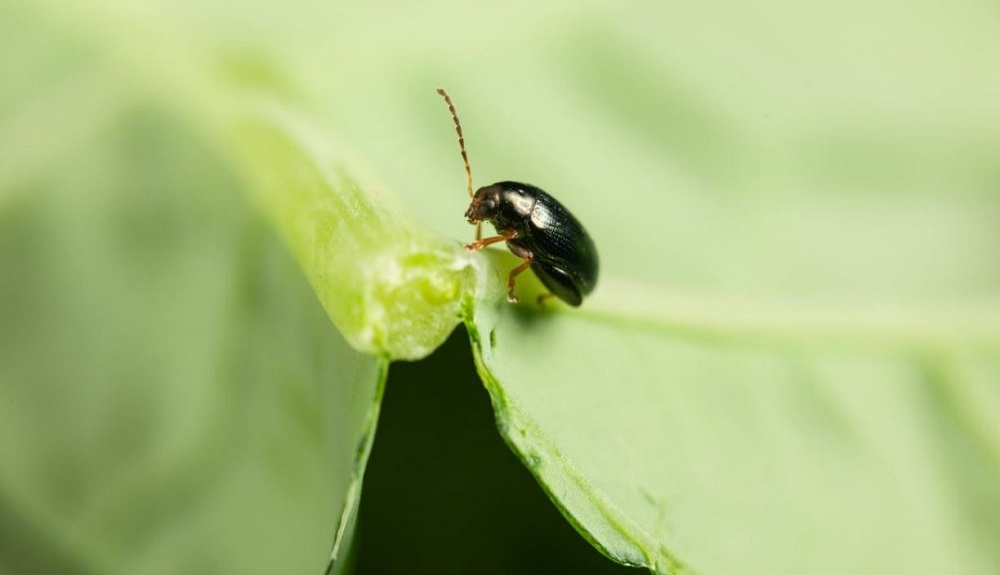
A nationwide effort to track cabbage stem flea beetle (CSFB) migration is being launched this autumn as farmers brace for one of oilseed rape’s most damaging pests.
Weekly updates on CSFB migration at seven core monitoring sites will be published by AHDB, with the first report expected in early autumn.
By providing regular information on adult beetle activity, the data should help farmers identify lower-risk drilling periods, particularly after peak migration.
In the longer term, researchers at the levy organisation hope to develop a decision support system capable of predicting the start, duration and intensity of migration events.
At the core sites, adult beetle counts from yellow water traps will be taken throughout autumn, while symptoms of larval invasion in crops will also be recorded.
Siobhan Hillman, who leads CSFB monitoring at AHDB, said: “When young crops encounter peak beetle migration, whole crops can be written off. This is particularly true when soil is dry.
"This autumn, weather forecasts will be even more critical to help set drilling dates. In sustained dry conditions, some may need to consider drilling after mid-September to avoid peak migration.
"Migration was muted last autumn, with only one monitoring site accumulating more than 100 adult beetles. It was the kind of autumn where some regretted not planting oilseed rape or not planting more of it, especially as we have seen some relatively high harvest 2025 yields."
She added: "It will be interesting to see if last year’s low pressure impacts the intensity of migration this autumn.”
Last year, Bayer launched the MagicTrap, an automated yellow water trap fitted with a camera and artificial intelligence system capable of identifying and counting insects at regular intervals.
These traps, supplied free of charge to the project, will be installed at the core monitoring sites alongside standard traps, and deployed exclusively at several other locations.
The new project, recommended for funding by the AHDB Cereals & Oilseeds R&KE Committee, will formally begin this autumn.
